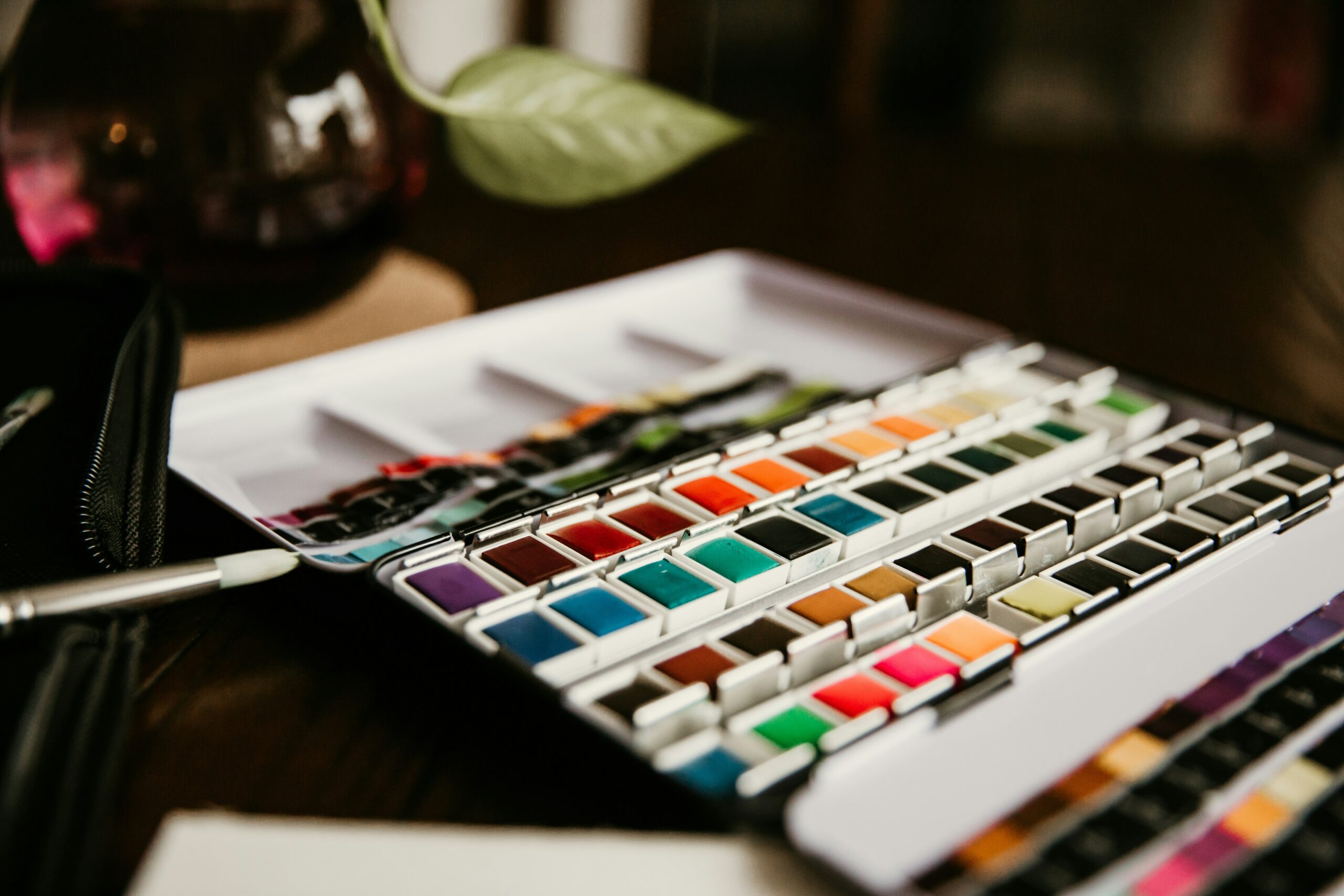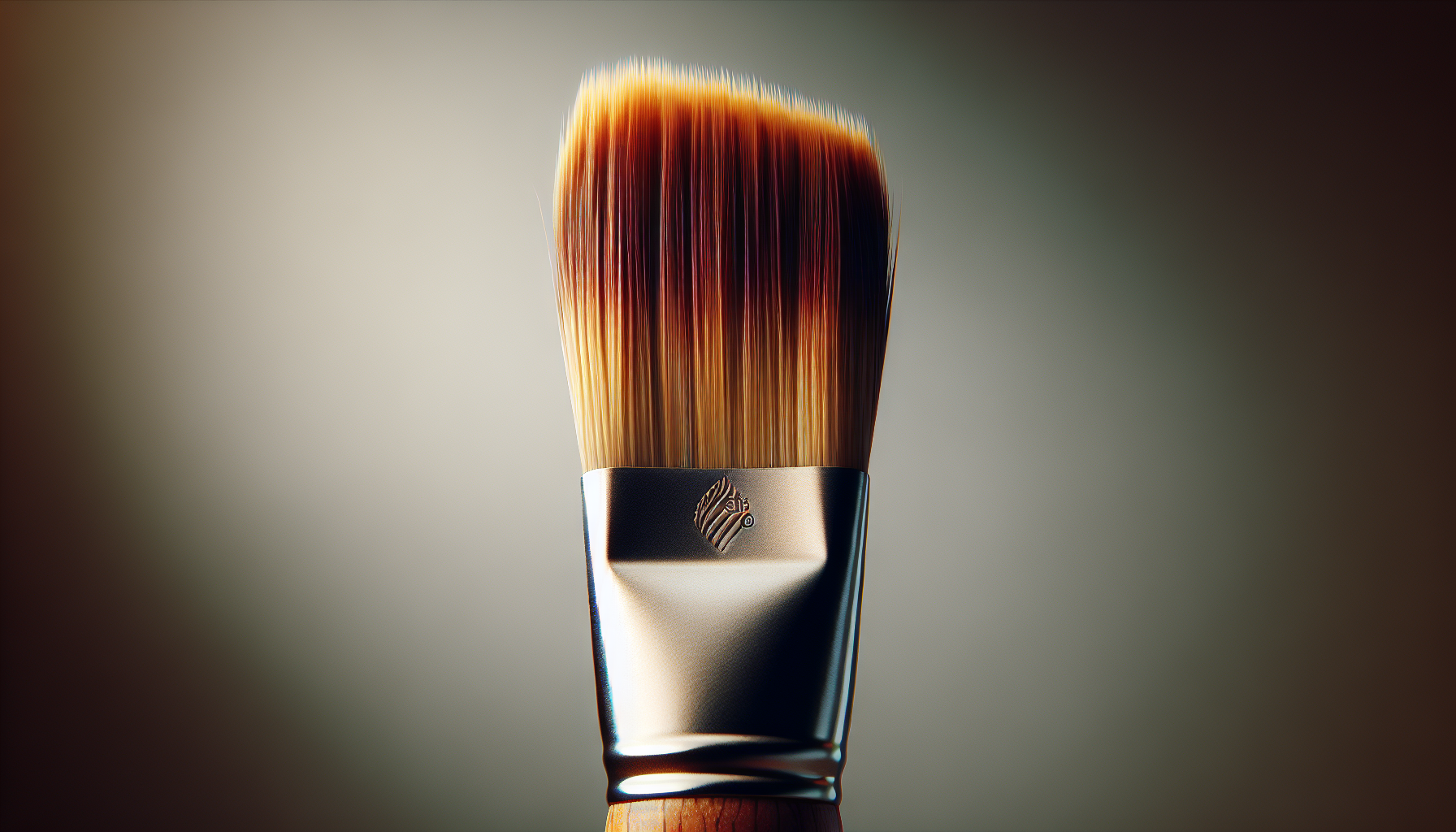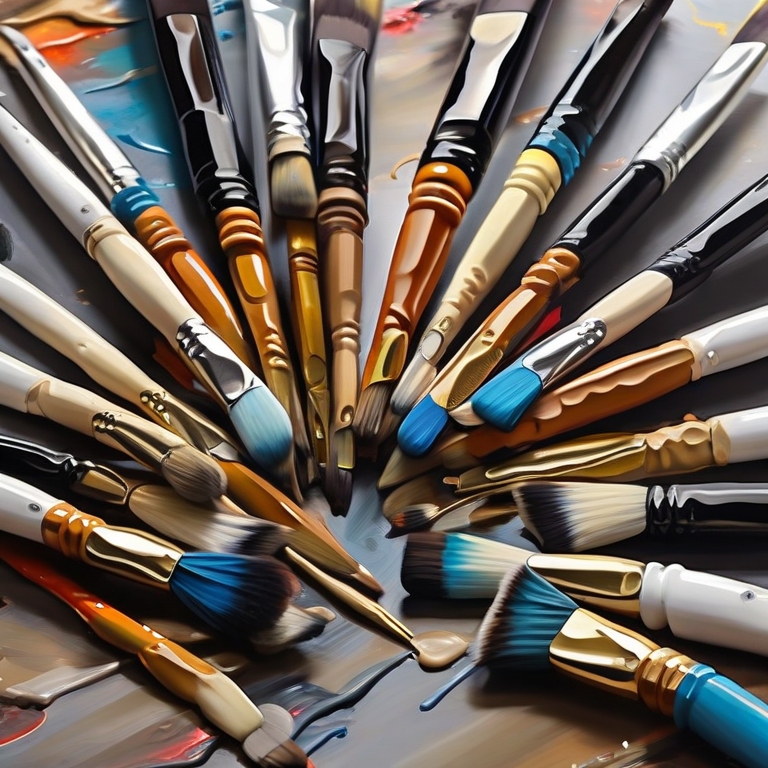Navigating the vast array of art supplies can be tricky, especially when it comes down to the specifics such as brushes. The article “Can I Use acrylic brushes For Oil Paint” sheds light on this common query faced by artists at all levels. It explores the nuanced differences between acrylic and oil paint brushes, informing you about the impact of using the wrong tools on your artistic output. Fascinatingly, there’s quite a lot to uncover, from the science behind brush fibres and their compatibility with various paint formulations, to the potential impact on your art’s durability. This piece serves as a comprehensive guide to understanding which brushes work best for each painting medium, directly impacting the success of your creations.
Understanding the Differences
As a painter, it’s crucial to know the characteristics and properties of the materials you use. The two most common mediums you are likely to encounter are acrylics and oils.
Different Composition of Acrylic and Oil Paint
Acrylic and oil paints are composed differently, with each offering unique qualities. Acrylic paint is water-based and dries quickly, while oil paint is composed of pigments suspended in drying oil, usually linseed oil. The oil base of oil paint allows it to dry slowly, extending its working time.
Variations in Consistency and Drying Time
The differences in composition affect the consistency and drying time of these two paints. Acrylic paint dries quickly and is water-soluble, but it becomes water-resistant when dry. On the other hand, oil paint takes a considerably long time to dry but provides a rich, luminous finish.
Implications for Brush Material
These differences are essential to note since they have implications for the kind of brush you use. Brushes that work well with water-based media like acrylics may not necessarily be the best choice for oil paint.
Compatibility of Acrylic Brushes with Oil Paint
When it comes to using acrylic brushes for oil paint, there are a few considerations to bear in mind.
Brush Bristles and Their Suitability
Different brushes have bristles made of various materials. For example, acrylic brushes often have synthetic bristles, while oil painting brushes may have natural bristles.
Bristle Types: Natural vs. Synthetic
Natural bristles absorb oil from the paint, which can help create smooth, even strokes. Synthetic bristles, typically used for acrylics, are less absorbent and can sometimes struggle to hold and apply oil paints in the same manner.
Considerations for Different Types of Oil Paints
It’s also worth noting that oil paints can vary in their consistency. Some are quite thick and require a stiffer brush, while others are thinner and can work well with softer brushes.

Advantages of Using Acrylic Brushes for Oil Paint
Despite these potential issues, there are several reasons why you might still consider using acrylic brushes for oil paint.
Availability and Cost-effectiveness
Acrylic brushes tend to be more widely available and are often cheaper than brushes intended for oil painting. They can, therefore, be a cost-effective option, particularly for beginners or those who paint frequently.
Easy Maintenance and Cleaning
Unlike oil brushes, which require careful cleaning with solvents, acrylic brushes can be easily cleaned with soap and water. This can make the cleanup process quicker and more straightforward.
Versatility Across Different Media
Moreover, acrylic brushes can be used with different types of paint, allowing you to experiment with various mediums without investing in multiple sets of brushes.
Potential Challenges and Limitations
But, of course, there may be some challenges and limitations if you decide to use acrylic brushes for oil paint.
Bristle Absorption and Loss of Paint
Again, acrylic brushes’ synthetic bristles are less absorbent than natural ones, which can result in loss of paint. You might find you need to reload the brush more often, which could disrupt your workflow.
Less Control Over the Paint Application
Using acrylic brushes with oil paint might also provide less control over the paint application. Synthetic brushes may not hold the paint as well, potentially leading to less precision in your strokes.
Potential Shortened Lifespan of Brushes
Finally, using acrylic brushes with oil paints could potentially shorten the lifespan of your brushes. The oil paint can be difficult to remove entirely from synthetic bristles, causing them to become brittle or misshapen over time.

Tips for Using Acrylic Brushes with Oil Paint
If you decide to try using acrylic brushes with oil paint, here are some tips to help you get the best results.
Preparation and Conditioning of Brushes
Before using acrylic brushes with oil paint, it’s essential to clean and condition them properly. This will help to remove any acrylic paint residue and prepare the bristles for oil paint.
Proper Brush Cleaning Techniques
When it comes to cleaning, be sure to use a proper solvent for oil paints. After cleaning with solvent, soap and water can be used to remove any remaining oil. Proper drying is also crucial to prevent the bristles from becoming misshapen.
Adjusting Your Painting Techniques
You may also need to adjust your painting techniques when using acrylic brushes with oil paint. For example, you might have to use the brush more gently to avoid overloading it with paint.
Alternative Brushes for Oil Paint
While acrylic brushes can be used with oil paint, there are alternatives specifically designed for this medium.
Hog Bristle Brushes
Hog bristle brushes are known for their strength and durability, and they can handle the weight of thick oil paints. Painters often use them for their capacity to create varied textures on the canvas.
Sable Brushes
Sable brushes are revered for their softness and flexibility. They are perfect for fine details and smoothing out brush strokes. However, they can be expensive.
Synthetic Oil Brushes
These brushes are designed to mimic the properties of natural bristle brushes but are more affordable and easier to maintain. They are an excellent choice for artists who favor oil painting but are looking for a more economical option.

Considering Personal Preferences
Choosing the right brush ultimately comes down to your personal preferences.
Experimenting with Different Brushes
The best way to understand what kind of brush suits you is to experiment with different kinds of brushes. Each will offer a distinct feel and effect.
Exploring Different Brush Strokes
Also, try exploring different brush strokes. This will enable you to ascertain which brush gives you the best control and produces the most desired effects.
Balancing Technique and Desired Effects
Sometimes, it is all about balancing your technique and desired effects. The brush that feels most comfortable for you and brings your vision to life is the one you should select.
Professional Artist Perspectives
Even among professional artists, perspectives on using acrylic brushes for oil paint vary.
Insights from Acrylic and Oil Paint Artists
Some acrylic paint artists have found success using their acrylic brushes with oil paint, while oil paint artists might caution against the practice, citing potential damage to the brushes and control issues.
Individual Preferences and Experiences
Again, individual preferences and experiences play a significant role. Every artist has their own unique process and approach. What works for one might not work for another.
Exploring Artistic Boundaries
Ultimately, art is about pushing boundaries and experimentation. Deciding to use an acrylic brush for oil paint could lead to exciting and unexpected results.

Conclusion
In summary, while acrylic brushes can be used with oil paints, their effectiveness will depend on your painting style, the type of oil paint you use, and your personal preferences. Understanding the differences between brush types and how they interact with different mediums can help you make informed decisions about what brushes to use. Don’t be afraid to experiment and find what works best for you. Happy painting!



